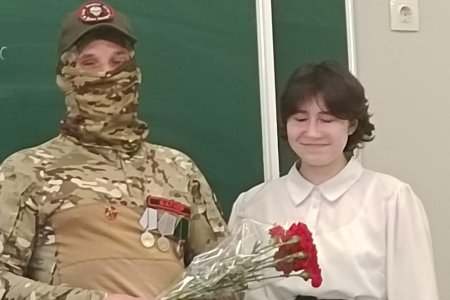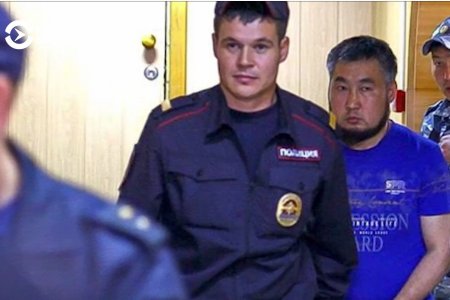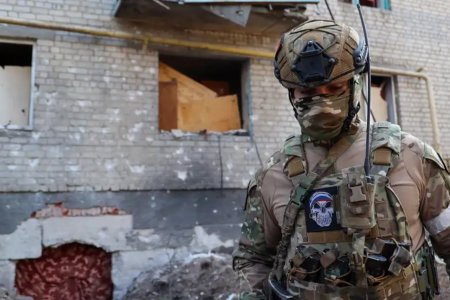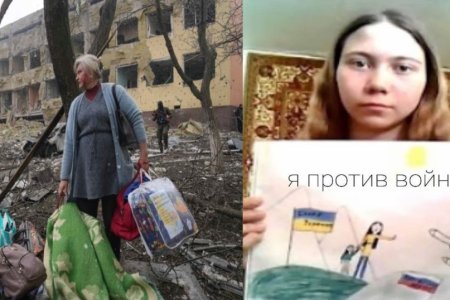
It is over two years since Russian convicted criminals were first recruited from prison to fight against Ukraine as part of Yevgeny Prigozhin’s Wagner Unit mercenaries. As well as their freedom, a pardon from Russian leader Vladimir Putin and a lot of money, the men were reportedly told by Prigozhin that they could do whatever they wanted with Ukrainians, there would be no consequences. Having annoyed Putin, it transpired that Prigozhin could also be killed without consequences, and his offer of impunity to criminals has proven more far-reaching than he possibly envisaged, It is increasingly unclear whether any of these criminals turned state mercenaries will face consequences even for the ever-mounting number of rapes, murders and other grave crimes that they commit after returning to Russia.
RFE/RL’s Siberian Realities recently reported that in the last week of August alone, at least four murders in Russia were committed by convicted prisoners who had returned from fighting in Ukraine. They included 11-year-old Nastya Yakina who was raped and murdered, with her body flung into a rat-infested and flooded basement, and 6-year-old Nastya, who was murdered together with her mother, Yekaterina Serebryannika. Vladimir Aleksandrov was serving the latest of many sentences, this time for rape, when recruited to fight in Ukraine and pardoned. Artem Buchin had, exactly two years earlier, raped and murdered a nurse, and received a 20-year sentence. He had served less than a year of this when recruited to kill Ukrainians. Since, after his initial release, he signed another contract with the army, any trial for the murder of his partner and her daughter, should it take place, will be before a military court.
There are serious grounds for doubting that any such trials, even if they begin, will result in a conviction. Although the leniency reported earlier from Russian courts with respect to so-called ‘veterans’ of the war against Ukraine might not extend to raping and murdering children, Russian legislators have prepared the way for allowing virtually any person in detention, on trial or already convicted, to be released from prosecution if they agree to fight in Ukraine.
According to Sergei Kaslin, a former prisoner and Wagner unit mercenary, Prigozhin was entirely open with the men he was recruiting. He wanted those who were serving around 20 years for murder, and not domestic disputes, as he wanted their “ability to survive and non-standard approach”. Putin’s pardons did eventuate, with this in turn meaning that men who had committed multiple crimes, including murder, could be treated like ‘first-time offenders’, with this also reducing the likely sentence. The pardons also mean that either when the men finish the agreed term and return home, or when they are sent home on leave or because of injuries, the enforcement bodies do not have any instructions to keep them under surveillance. Russia’s defence ministry took over such recruitment in 2023, but little else has changed.
It became clear early on that the media were being encouraged to avoid reporting the horrific crimes committed by men returning from Ukraine. Many of the cases are so shocking that reports do appear, but, judging by neighbours, etc. of victims, most seem aware that the perpetrators can simply agree to fight again, and the prosecutions will be dropped. Those who speak openly about the situation do not, however, do so under their real names. The neighbour of one victim of such state mercenaries said that it has become positively frightening. She noted that the media claim (following Putin) that there are less repeat offences from those who return from Ukraine, and that their victims are effectively collateral damage. She is clearly unconvinced and says she cannot understand “those who signed the pardons”. “Defenders whom we have deserved, it transpires. What will happen when thousands of such individuals return home?”
In fact, a police officer (also speaking anonymously) told Siberian Realities that, in his experience, there are more such repeat offences, not least because there is no police oversight since the men have been ‘pardoned’ and therefore are viewed as not having committed a crime. He points out, however, that nobody is keeping any statistical records. “On the contrary they all try to ensure that as little information appears as possible about the fact that a person accused or convicted of the crime had recently returned from Ukraine.” He too believes that there will be a major problem when the war ends and that “the country will have only one option, to find a new military target on the map and send them all there.”
There have already been occasions, he adds, when during the criminal investigation, a person signs a contract and instead of facing prosecution, goes off to fight in Ukraine.
It became clear early in 2024 that Moscow was seeking new ‘recruits’ among those in detention or on ‘trial’, as well as finding ‘use’ for those supposed ‘veterans’ who had committed new crimes. A bill only tabled in the State Duma on 6 March had passed through its first reading on 12 March and was clearly set to be rushed through. This allowed for prosecutions to be suspended at any stage if a person agreed to fight Russia’s war. It was clearly aimed at helping conceal the grave crimes committed by those ‘veterans’ whom Putin claimed were the ‘elite of the country’ (see: Agree to kill Ukrainians and Russia will free all but political prisoners
Although Siberian Realities seemed to suggest that not all legislation is yet in place, the above amendments were reported to have been passed in full, and there have been cases where people have been released from custody after signing a contract to go to / return to Ukraine. These include Ivan Rossomakhin who has gone back to kill in Ukraine after being sentenced to 23 years for the rape and murder of an 85-year-old woman, committed after he returned from the front. He had been sentenced in 2020 for various crimes, including murder, but was recruited to fight, and then released in the Spring of 2023.
While Putin has claimed that there are far less repeat offenders among those convicted killers and other criminals whom he ‘pardoned’, this is certainly not the view of others. Olga Romanova, co-founder of Russia Behind Bars, told Siberian Realities that these men do not just have post-prison and post-war trauma, they have also not served their sentences and have not undergone any form of socialisation or preparation for release. “They are aware of their impunity. They know that they can kill, rob, knife, rape whom they like because there is no longer a cause-and-effect link between crime and punishment. They know that as soon as the handcuffs clip into place, they will announce that they want to go to ‘SVO’ [the so-called ‘special military operation’, Russia’s euphemism for its war against Ukraine] and they’ll be free. And in addition to all of that, they have been told that they are the new elite.”



